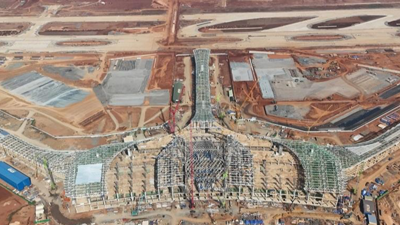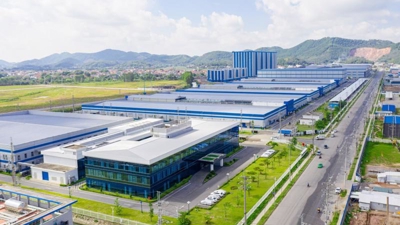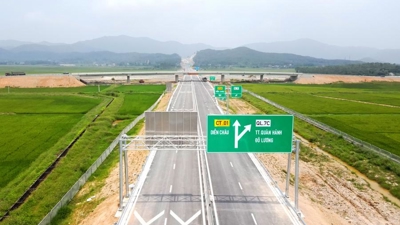Vietnam and India offer robust investment opportunities for collaboration
There is promising space for deepening partnerships and exploring new areas of cooperation between the two countries.
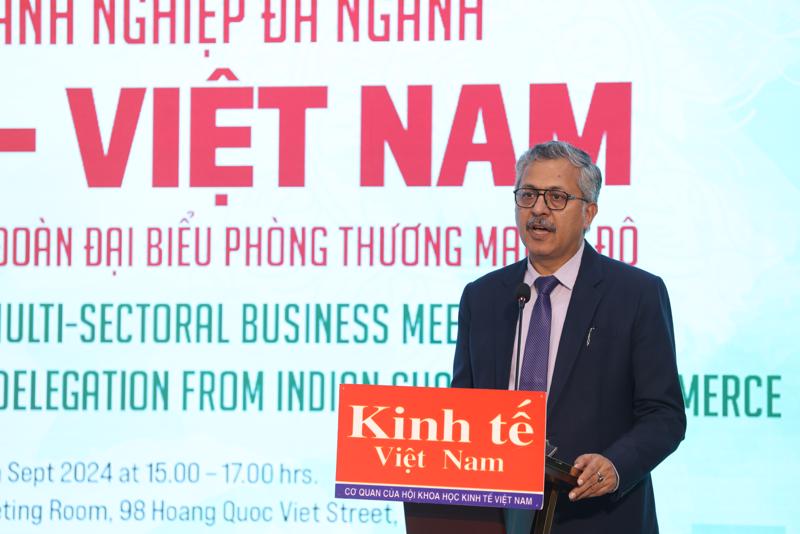
The Indian Embassy in Vietnam, in collaboration with Invest Global and the Indian Chamber of Commerce in Hanoi, hosted a seminar titled “India-Vietnam Multisectoral Business Meet” on September 10, on the occasion of the visit by the Indian Chamber of Commerce (ICC) delegation to Vietnam, .
This event marked a significant step in deepening economic ties between the two nations.
The seminar saw the participation of over 50 representatives from a diverse range of businesses across both Vietnam and India. The attendees gathered to explore potential cooperation opportunities and forge new business connections, thus enhancing the bilateral relationship between the two countries.
This event is part of the broader framework of the Vietnam-India Comprehensive Strategic Partnership Action Plan for the 2024-2028 period, which was approved by the Prime Ministers of both countries in August.
STRENGTHENING THE VIETNAM - INDIA COMPREHENSIVE STRATEGIC PARTNERSHIP
During the seminar, Mr. S. Chinpau Ngaihte, First Secretary of the Indian Embassy in Vietnam, highlighted the robust state of bilateral cooperation, noting that trade between Vietnam and India had surpassed $14 billion in 2023. The comprehensive strategic partnership between the two nations has fostered expansion across various sectors. Vietnamese Prime Minister Pham Minh Chinh has set an ambitious goal to elevate the bilateral trade to $20 billion in the near future, reflecting the deepening economic ties.
Indian businesses are actively engaged in various sectors in Vietnam, including automotive parts manufacturing, pharmaceuticals, information technology, tea and coffee processing, renewable energy, and oil and gas exploration. Additionally, several Indian companies are evaluating investment opportunities in Vietnam in areas such as mineral processing, pharmaceuticals, waste management, information technology, port infrastructure, and agricultural products.
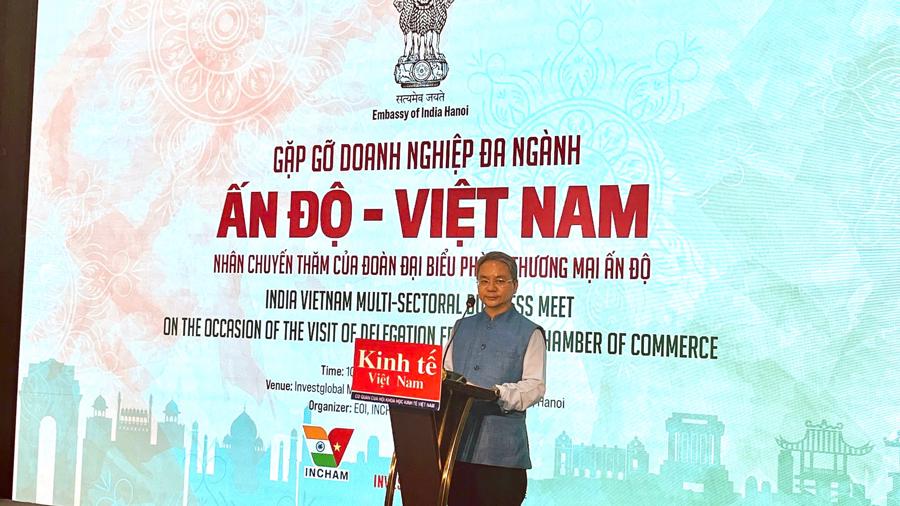
According to Mr. S. Chinpau Ngaihte, to further support these initiatives, the Indian government aims to boost its economy to $5 trillion by implementing a range of growth policies designed to enhance the investment climate. This includes creating more opportunities for international businesses.
The Indian government is particularly encouraging Vietnamese companies to consider investing in India, especially in sectors where Vietnam has notable expertise, such as electronics, electric vehicles, wood processing, telecommunications, digital technology, and tourism. “The Indian Embassy in Vietnam is fully committed to supporting and assisting businesses in capitalizing on these opportunities for collaboration and growth,” Mr. S. Chinpau Ngaihte emphasized.
Mr. Bui Trong Thoan, Deputy General Director of Invest Global, shared insights from his extensive experience in renewable energy projects, environmental protection, wastewater treatment, infrastructure development, and tourism trade.
He noted that Invest Global has entered into multiple agreements with Indian chambers of commerce and major associations, aimed at creating investment cooperation opportunities between the two countries. These efforts have contributed significantly to economic development and enhanced Vietnam’s standing on the global stage.
VIETNAM’S GROWING APPEAL FOR INDIAN INVESTORS
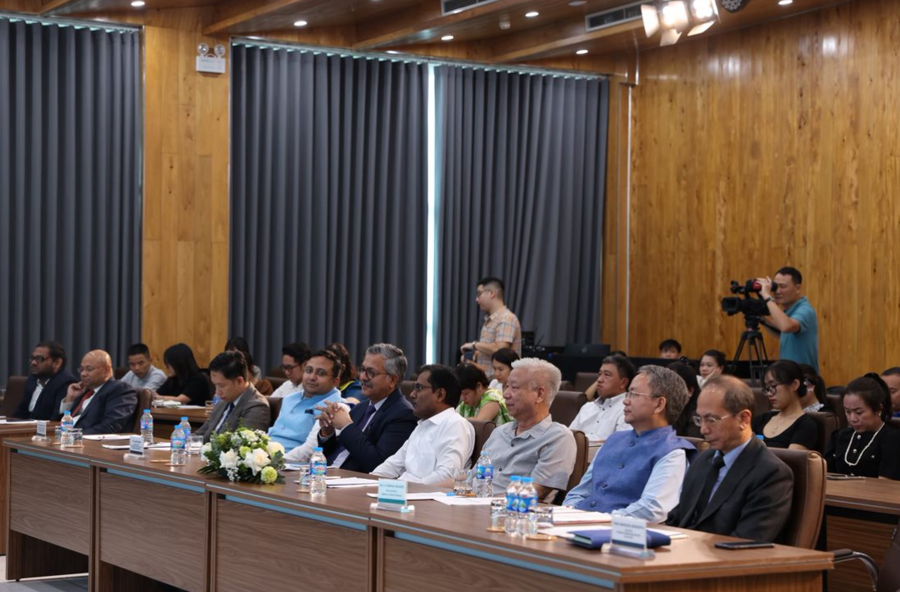
Dr. Rejeev Singh, General Director of the Indian Chamber of Commerce (ICC) and head of the ICC delegation, reported that ICC had conducted nine cooperation programs with Vietnam over the past year. This includes five Indian delegations visiting Vietnam and four Vietnamese delegations traveling to India.
The global landscape has shifted significantly in the post-pandemic era. India, with its population of 1.4 billion and a growing middle class, is experiencing a transformative economic revolution. As a result, many countries are choosing India as a reliable partner for establishing global supply chains. Vietnam, in particular, has maintained strong relationships with both the Indian government and Indian businesses, solidifying its position as a key player in this evolving dynamic.
Mr. Indronil Sengupta, Chairman of the Indian Chamber of Commerce in Vietnam (INCHAM), identified three main factors driving these positive developments: The first is demographic advantage: Vietnam's population of more than 100 million is at a mature stage with high consumption potential, making it an attractive market for Indian investors
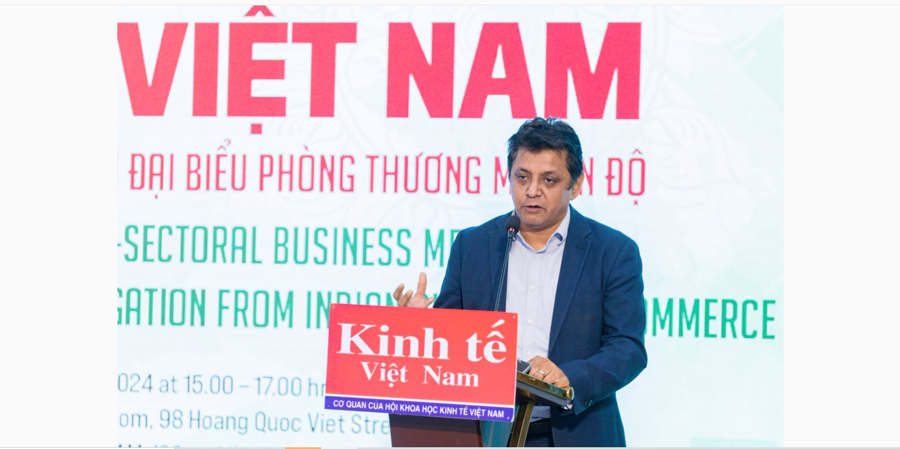
The second is Trade Agreements: Vietnam ranks second only to Singapore within ASEAN in terms of signing free trade agreements with major countries and global organizations. This extensive network facilitates easier market access for Indian businesses
Finally is Government Support: The Vietnamese government’s enthusiastic support for industrial and economic zones has streamlined the entry process for Indian and international businesses. This has reduced administrative burdens and expedited the establishment and operation of factories and production lines, making Vietnam an even more attractive investment destination.






